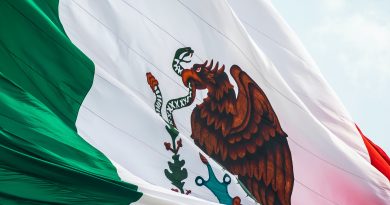Japan Holds Early Election to Determine Prime Minister
By Alyssa Futa
Staff Writer
October 22, 2017 marked Japan’s early election to determine their prime minister for the next four years. The results of Japan’s early election did not come as a surprise to many with Prime Minister Abe keeping his position. In accordance to this election, Abe was able to gain more than the two-thirds parliamentary majority, which is important when it comes to the policies he wishes to revisit.
Abe, who is the leader of Japan’s Liberal Democratic Party, worked together with Komeito, a Buddhist party in Japan. His opponents consisted of Yukio Edano, the leader of the newfound Constitutional Democratic Party, and Yuriko Koike, the governor of Tokyo and leader of the Party of Hope.
The candidates had to address issues such as the threat of North Korea and “dealing with a rapidly aging workforce, stubborn deflation and stagnant wages” reports Bloomberg. Abe’s solution consisted of raising the sales tax to alleviate debt, going from eight to 10 percent over a period of a few years. In addition to providing these solutions, Abe referred to his other successes as prime minister, including an unemployment rate that is less than three percent and an artificially weakened yen that supports exports.
However, while Abe faced these successes, his opponents faced a different issue. According to the New York Times, “Japan has one of the worst records in the world for female political representation”. Women hold about nine percent of the seats in the lower house of parliament, putting Japan at 165th out of 193 countries in terms of females in government. Progressive voters were hopeful that Yuriko Koike, the only leading female candidate in the general election, would become the first female prime minister in Japan.
In every election, it is difficult for political parties to find female candidates. This has been attributed to many reasons, including the fact that political machines usually favor men. Women have also been turning their attention to issues in the workplace instead of politics. Japanese work culture includes strict hours and rigid job structure, both of which women are attempting to change.
These domestic issues have come to light in this early election amidst others foreign concerns. Candidates discussed the approach they would take with the North Korean crisis, a fact relevant as President Trump prepares for a trip to Japan in November where military action could be discussed.
Some say that Abe decided on an early election to take advantage of the recent increase in his approval ratings due to his tactic on handling the North Korean crisis, including following a no dialogue policy. Many say that it is better that the Japanese government has an election now rather than later considering “the North Korean issue may have heated up” according to Al Jazeera. Elections were scheduled to be called next year.
One of the largest issues addressed was the Prime Minister’s consistent attempts at revising the Japanese constitution. Article Nine charter, also known as the “peace clause”, prevents Japan from having an offensive military. Abe has taken steps toward revising this charter in the past with little success. According to The Guardian, Abe has renewed his calls after North Korea sent two ballistic missiles over the northern island of Hokkaido, “triggering alerts and calls for Japan to develop the ability to strike North Korean military site” [sic].
Abe’s re-election comes at a time of great uncertainty in Asia. One generally agreed outcome is that Japan has dissolved the uncertainty of having a new prime minister amidst hostile relations with North Korea and revisions to their constitution.

